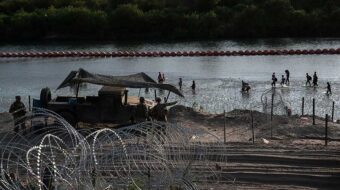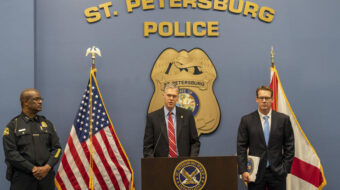The FBI plans to issue new rules broadening the discretion of its 14,000 field agents over matters of individual privacy, and, while the legality of such a move hasn’t been called into question, it has raised questions and concerns on the part of civil libertarians and some lawmakers alike.
The new rules are to be made public when the Bureau releases an update of its Domestic Investigations and Operations Guide, which outlines policies on how agents are to conduct investigations. The current version was published in 2008.
The law enforcement agency sees the changes as minor, but the American Civil Liberties Union disagrees. “The FBI claims that this update to the guidelines is a mere tweak,” wrote the ACLU’s Amanda Simon on the organization’s blog. “Somehow that sounds like an incredible understatement.”
Simon said that the current guidelines are already bad: “[T]here is a dangerously low threshold for beginning an investigation or conducting surveillance about individuals or groups who are not suspected of any criminal activity,” she wrote. “The guidelines in place now also allow the FBI to collect, analyze and map racial and ethnic data about local communities, which also opens up a whole other can of worms – namely, the possibility that the FBI is engaging in unconstitutional racial profiling.”
Some are troubled that the rules changes come in the context of a recent Chicago FBI raid of anti-war groups and their supporters that received that condemnation of many, including the local Sun-Times.
Sens. Patrick J. Leahy, D-Vt., Charles E. Grassley, R-Iowa, respectively chair and ranking member of the Senate’s judiciary committee, agreed that the matter was worth more consideration. They sent a letter to FBI Director Robert Mueller requesting that “that the FBI provide a briefing to Committee staff to discuss the proposed changes and provide an opportunity to review the final version of [the new FBI rules manual] before it is implemented” and “that once [the manual] is finalized, a public version be released and made available on the FBI’s website.”
The New York Times, which broke the news, was also extremely critical. “The Obama administration has long been bumbling along in the footsteps of its predecessor when it comes to sacrificing Americans’ basic rights and liberties under the false flag of fighting terrorism,” the editorial read. “Now the Obama team seems ready to lurch even farther down that dismal road than George W. Bush did.”
The proposed new guidelines, as reported by the Times, would contain several changes that give agents greater discretion in investigations.
Included in the changes:
Agents will be able to freely conduct searches of people and organizations in law enforcement and commercial databases. They currently have the right to do this, but now they won’t need to make a record.
There are secret rules on the books governing how agents must operate when they infiltrate religious or other organizations, but now they will be able to attend five meetings of such a group before they must follow these rules.
In the lowest level investigations, or assessments, officials will be able to use lie-detector tests on informants as well as suspected perpetrators.
Agents will be able to search the trash of anyone involved in an assessment, which requires no documentation of suspected wrongdoing.
Agents will not need special oversight to investigate some public officials, “low-profile” bloggers and scholars employed by foreign institutions.
On the other hand, the FBI is tightening up regulations of some activities, including policies on who has authority to approve covert participation in religious ceremonies.












Comments